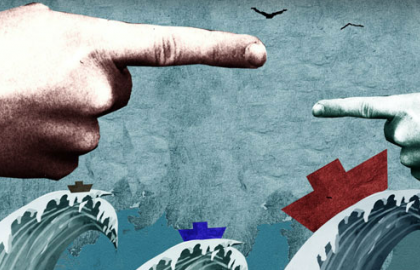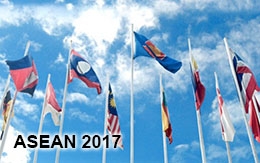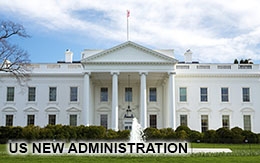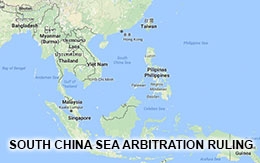Hyper-nationalism is not the future
There is no easy solution to the territorial dispute in the South China Sea, but boosting nationalism to the point of extremeness is not the answer.

Support and prayers are still being voiced for those suffering from Mangkhut typhoon. But while the storm that crossed the South China Sea is over, what it has torn open is uglier than ever.
Just scroll through the comments in Vietnamese on social media and Youtube. They show some people actually think such tragic event is a blessing thanks to one simple fact: it hit China.
And this is not the only such case. The 2016 Nida storm presented an even bigger cause to celebrate to some online “commentators” in both Vietnam and the Philippines since it reportedly swept away China’s reclamation work in the South China Sea. Likewise, 2016 Jasmine typhoon was characterized by China’s state-owned People’s Daily as “blows away illegal island” made by Vietnam, hence was cheered by the comment section participants. “The wrong will be righted by Nature,” one comment said.
All of these point to one aspect of the territorial dispute in the South China Sea that is usually forgotten, sometimes on purpose, by academic exchanges and elite politics: nationalism, or particularly what I call “ugly nationalism”.
Ugly Nationalism
“Good nationalism”, based on common sense, logic and values, aims at forging a shared identity, promoting cooperation and growth, preserving culture, and sometimes helping defending the nation from foreign predating. In contrast, “ugly nationalism” has no logic, no common sense, and purely blind hate, encouraging violent options over legitimate and peaceful alternatives.
There has been a sense of rising “ugly nationalism” in South China Sea in recent years, especially after China’s oil rig placement within Vietnam’s Exclusive Economic Zone in 2014 and the 2016 ruling of the arbitral tribunal under Annex VII to the 1982 UNCLOS (also popularly referred to as the PCA’s ruling) in favor of the Philippines over China. Quick Google searches provide images of some carrying aggressive anti-China slogans, violent protests, and public vandalism in Vietnam. In China, a survey shows 85 percent believe in military means to “retake” disputed islands. After arbitral tribunal’s ruling in 2016, a flood of Chinese Internet users, including high-profile celebrities, spread the image so-called nine-dash line, claiming that they would enroll in the army to protect China’s interest. Some students from China and Vietnam, even at young ages, would proudly declare that they would hate the other’s entire population just because they “stole our land”.
The source of this development is the claimants’ more assertive, even aggressive actions in the past few years. These actions range various levels, from social-related issues like vessel harassment or cable-cutting to macro national security issues like violations to freedom of navigation and over flight or land reclamation, rapidly escalating anger within the public. Another source, more subjective, comes from the claimant’s practice of deliberately exploiting nationalism. Students are taught that their country has the rightful ownership to the entire features in the whole sea without any supporting evidence or legal basis. History is distorted over the years to fit that narrative. Public media would portray the other side as the “bad guy”. Much of governmental effort has also been reportedly poured into political information warfare.
Is it working?
“Ugly nationalism” yields certain disadvantages. First, on macro level, it harms bilateral ties by overshadowing positive development. Although trade and investment are increasing (Vietnam’s export to China in the first half of 2017 surged 43 percent from last year), the news headlines still deliver the hostile narrative regularly, creating the impression that the entire relationship is deteriorating, and fostering the hawkish, and sometimes militarist, perception across all walks of life in both countries. Adding up to that, “ugly nationalism” played out in public, such as violent protests in 2014, did damage the flow of foreign investment and tourists into Vietnam, despite the fact that it partly pushed the oil rig away sooner.
Second, it does not contribute to the dispute settlement process. The current state of nationalism has driven dispute parties closer to the zero-sum game ideology, that “everything is mine” mindset. Policy makers would feel pressure if not pursuing such mindset. Within the scope of such legally and historically complex dispute like that in the South China Sea, that mindset only accelerates tension and diverts from negotiation efforts or other management measures like maritime cooperation.
Third, it fosters a deeply rooted hatred. Citizens from each side, at young ages, are coded with distorted history. Not just people from disputing countries, foreigners, especially those from Western countries, also approach us with that type of perception, thinking that the Vietnamese or the Filipinos must hate the Chinese or vice versa. This is the most vivid damage and also, the most painful thing, since it could be seen every day. It is painful to watch a 10-year-old proudly declare he hates a nation of more than 1 billion people, or to see the “online commenters” wish nothing but greater damage for innocent lives during natural disasters.
It is true that nationalism can unite domestic support, capture international attention, and sometimes, advance the legitimacy of the ruling government. But if one government has to rely on that for legitimacy and supporting claim, then its capacity and backing evidence in dispute should be revised. Moreover, nationalism could be a double edged sword hurting the government’s standing. China’s public already questions the party’s power since they have not seen any progress in island claiming.
The age-old alternatives
There are alternatives to “ugly nationalism”. First, international law and rule of law should be promoted to help forge consensus. Hence, efforts from outsiders like the US or the EU in urging claimants to respect and practice the law is worth mentioning and applauding.
Then, on bilateral scale, policy makers should not let themselves be driven by blinded populism and xenophobia, and instead adopt a more cooperative mindset. It should be frequently stressed and brought to light that there are tremendous opportunities for claimants to cooperate without sacrificing their sovereignty. Areas of cooperation include fisheries management, marine and environmental protection, search and rescue or scientific research, etc.
Lastly, on the national scale, it is time to drop hostility from education and media propaganda. Instead of teaching students to nurture hate, teach them about the law of the sea and historical evidence so that their arguments can be reasonably founded. Teach them about the deeply interwoven cultural and economic ties between the claimants so that the importance of a liberal thinking is recognized. Teach them how to be civilized citizens who should seek all types of peaceful means and should not call for arms immediately to resolve disputes unless it is necessary to defend them from a visible armed attack.
There is no easy solution to the territorial dispute in the South China Sea, but boosting nationalism to the point of extremeness is not the answer. A less “ugly” approach could open new doors for cooperation and maybe in the long run, dispute settlement. Most importantly, nurturing positivity rather than hatred is crucial in such a tumultuous political climate.
Hoang Do is currently a postgraduate student at George Washington University. He previously worked with the Institute for Foreign Policy and Strategic Studies, Diplomatic Academy of Vietnam
Click here for pdf file










